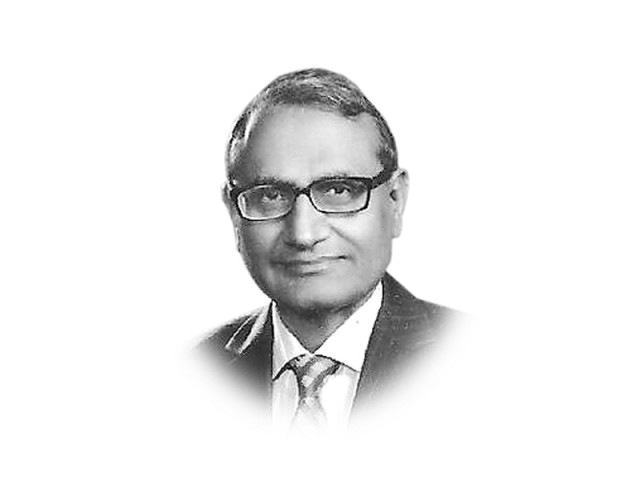The state of the State Bank
State Bank has been the handmaiden of government's borrowing joy ride, contributing to a rise in core inflation.

pervez.tahir@tribune.com.pk
And why not! As The Express Tribune reported this week, the central board of the State Bank has only three members in position. Conveniently, one is the governor himself and the other two are the finance secretary and a former commerce secretary. Following some ill-informed debate in the parliamentary committees, the legislation to protect the autonomy of the State Bank has witnessed unusual foot-dragging. Strangely, the page related to the draft of the State Bank of Pakistan Act cannot be found on its website. What is found is the IMF agreement, noting that this draft has been prepared to strengthen the operational independence of the State Bank. Legislators may justifiably ask why an unelected person, the governor of the State Bank, should enjoy so much power. Instead, the focus was on the IMF ‘dictation’ and the failure to regularly hold the meetings of the Fiscal and Monetary Coordination Board. Chaired by the finance minister, this board ‘over-coordinated’ whenever it met. The resulting confusion has affected the working of the State Bank. Its annual report used to come out by October. It was eagerly awaited because it covered the full fiscal year compared with the nine months’ coverage by the Economic Survey that is published with the budget. The latest report has just come out. In terms of content, these reports have started to look like the annual plan of the Planning Commission, devoting more pages to development issues than inflation, monetary policy and credit. The tradition was started by a governor whose own background was that of development, not of matters of money and its creation. A package of reform to lift Pakistan’s economic growth is suggested, repeating the donor agenda on the energy sector and public sector enterprises.
An example of the deteriorating quality is the assessment of the future growth made in the recent report. Just like the unchanged discount rate, the State Bank believes that the GDP growth rate for 2012-13 is likely to be the same as in 2011-12. The expectation is a simple average of what the IMF and the World Bank are saying, but the rationale presented by the State Bank borders on the ridiculous. “We are confident that milder flooding this year and the underlying factors that allowed for 3.7 per cent growth in FY’12 will largely remain in play.”
Published in The Express Tribune, February 15th, 2013.



















COMMENTS
Comments are moderated and generally will be posted if they are on-topic and not abusive.
For more information, please see our Comments FAQ